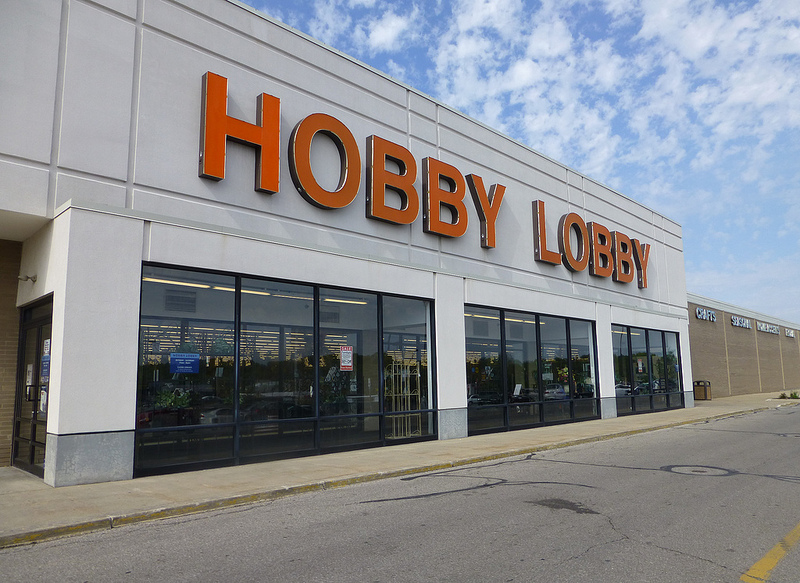Today, in a much-awaited ruling, the U.S. Supreme Court delivered a 5-4 decision in favor of Hobby Lobby. Now, the beloved craft and decor chain cannot be forced by the Obama administration to pay for chemical abortions.
In fact, Hobby Lobby only objected to paying for four out of twenty forms of birth control. Based on research, the company’s owners believe that these four forms – including Plan B and Ella – cause early abortions.
(There is evidence that additional forms – including the popular birth control pill and the relatively new Nuva Ring, which can greatly harm women – also cause early abortions, but Hobby Lobby did not assert this.)
Clearly, Hobby Lobby’s intention was straightforward: to refuse to pay to end an innocent human life, specifically on religious grounds. Just as many Christian business owners would object to paying for a surgical abortion, Hobby Lobby objected to paying for a chemical one.
There’s not much debate out there on whether or not IUD’s end the life of a new baby right after fertilization. This is one of the birth control devices Hobby Lobby felt compelled to refuse to pay for. Understandably, since Hobby Lobby is run by an evangelical Christian family, the company objected to being forced to fund intentional death.
Apparently, the Court agreed that the penalty looming in front of Hobby Lobby for refusing to pay for chemical abortions was too great: $475.5 million per year in fines, when Hobby Lobby makes $2.28 billion in revenue a year. That’s over 20% of its revenue that Hobby Lobby would have had to pay in outrageously unfair fines.
Regardless of the fine amount, the Court’s ruling in Hobby Lobby assures that closely-held, for-profit companies cannot be forced to pay any fines if they religiously object to providing early abortions in the form of birth control.
The logic behind Hobby Lobby really is quite simple. Should a religious person be stripped of his ability to participate in the for-profit sector of America (through the use of heavy fines); should he be penalized for his participation through any amount of fines at all; or, in the alternative, should he be forced to violate his religious convictions if he chooses to enter this sector? The Court answered no to all of the above.
Do we as a nation really want to ask our citizens to check their religion at the door of their business?
Furthermore, should such an autocratic definition of “religious” really be placed on employers? The Obama administration originally set out terribly hard-to-meet standards for ObamaCare’s religious exemption. An employer had to primarily serve and primarily employ people “who share its religious tenets.” (The exemption ended up being modified, but still only applied to non-profits.) Such a definition – if it had been applied to for-profits – would have been highly hypocritical, based on civil rights laws that prohibit religious discrimination in hiring.
The Obama administration, in effect, decided that it would fine business owners – in outrageous amounts – for daring to assert a religious conviction against killing innocent people.
Many Christians (and one would assume, adherents of other religions) would rather shut down their businesses than shut down their sincere beliefs that prohibit them from participating in killing an innocent human. The success of a profitable company ought not to be forced to rest on the blood of children. American business owners have – and should have – the right to object.
As Justice Alito wrote in the majority opinion of Hobby Lobby:
[I]t is important to keep in mind that the purpose…is to provide protection for human beings. A corporation is simply a form of organization used by human beings to achieve desired ends. An established body of law specifies the rights and obligations of the people…who are associated with a corporation… When rights, whether constitutional or statutory, are extended to corporations, the purpose is to protect the rights of these people.
Indeed, Americans must not be forced to choose between their right to freedom of religion and their business. We are freer than that. And thankfully, today, the Supreme Court agreed.







